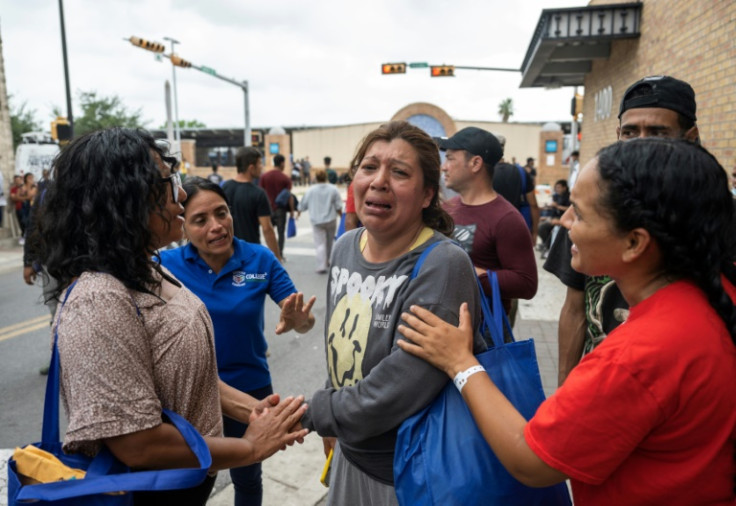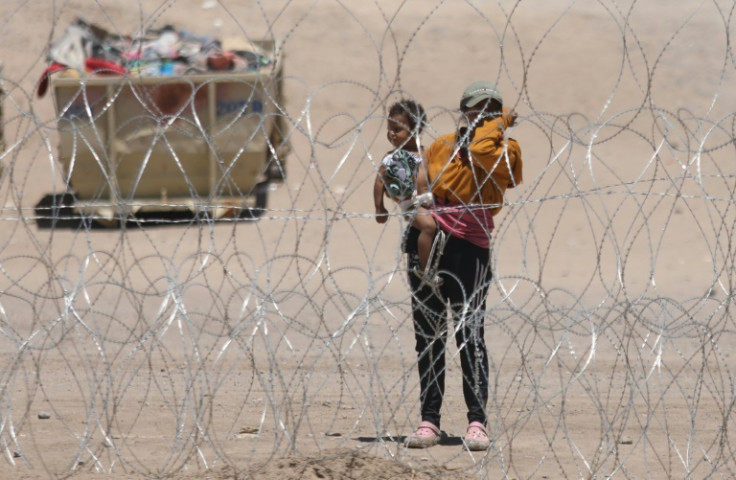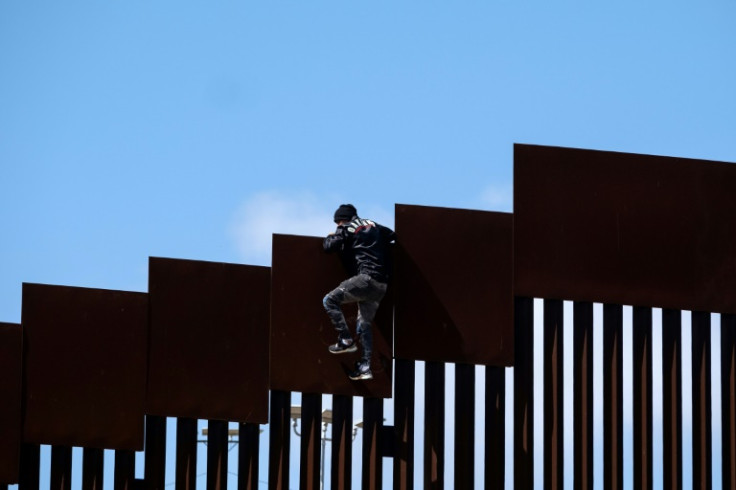Uncertainty As Covid-era US Border Rules Expire

Rules that have allowed US border guards to summarily expel hundreds of thousands of would-be asylum seekers over the last three years expired early Friday, setting up an uncertain future for migrants and inflaming America's always-churning immigration debate.
Tens of thousands of people were expected to try to cross into the United States over the coming days, hoping to escape the poverty and criminal gangs that wrack their own countries.
For more than three years the 2,000-mile (3,200-kilometer) frontier with Mexico has been regulated by Title 42, a health provision designed to keep Covid infections at bay by turning people away before they made a claim for asylum.
But with the formal ending of the Covid emergency, that rule expired at midnight East Coast time (0400 GMT) -- with new restrictions taking its place.
Those new regulations require asylum-seekers and other migrants to request entry from outside the country.
But how things will play out in practice remains unclear, and the situation has already roiled America's heated immigration debate.
The administration of President Joe Biden is trying to walk a tightrope between offering the pathways to asylum demanded by members of his own Democratic Party, and avoiding the looped footage of hundreds of people pouring over the border.
"Starting tonight, people who arrive at the border without using a lawful pathway will be presumed ineligible for asylum," Homeland Security Secretary Alejandro Mayorkas said as Title 42 expired.
"We have 24,000 Border Patrol Agents and officers at the Southwest Border and have surged thousands of troops and contractors, and over a thousand asylum officers to help enforce our laws."
Biden's Republican Party opponents have seized on what they say is an "invasion."
Senator Ted Cruz of Texas told reporters in Brownsville there were 22,000 people camping just on the other side of the frontier from this southernmost Texas city alone.
"And I have to say I am angry, because this is deliberate, this was a decision that was made by President Joe Biden and (Vice President) Kamala Harris and congressional Democrats to open up the border to what is nothing less than an invasion," he said.
Senator Roger Marshall told Fox News the border situation was a "disaster."
"The number one threat to our national security is right here in southern Texas, all the way to Arizona," he said. "This is not the America that I grew up in."
AFP reporters in Brownsville said there were dozens of police cars deployed on the US side of the bridge that connects the city to its Mexican neighbor Matamoros.
Heavy earth-moving equipment could be seen a little further on, with personnel readying the ground to install barbed wire.
In El Paso, hundreds of people who passed into the country through a legitimate border gate on Thursday had been processed, allowed to lodge their initial asylum claim.
But there was confusion among rank and file border patrol officers about exactly what will happen in the coming hours and days.
"We don't know," said one when asked how they would handle migrants.
At the frontier Thursday, some made last-minute attempts to beat the deadline, fording the narrow but fast-moving Rio Grande river near Brownsville hoping they might simply be released into the United States after turning themselves into Border Patrol.
"I hope to be able to stay in this country," said 29-year-old Ecuadoran Jimmy Munoz, just after climbing onto US soil.
"But I have doubts and fears that they will let me."
Families were split in the confusion: Patricia Vargas from Venezuela wept as she sat at the bus station in Brownsville, where hundreds of migrants awaited the chance for transportation onward.
Her son, daughter-in-law and two grandchildren failed to make the crossing.
"We were five in total and only I was able to get through," she sobbed.
Asylum-seekers are required to seek interviews via a smartphone app -- though users report it is glitchy and presents a hurdle for those without working phones or Wi-Fi.
Mayorkas defended the app, saying technical issues were being addressed.
"The greatest challenge with respect to the CBP One app is not a technological challenge, but rather, the fact that we have many more migrants than we have the capacity to make appointments for," he conceded.



© Copyright AFP 2024. All rights reserved.





















